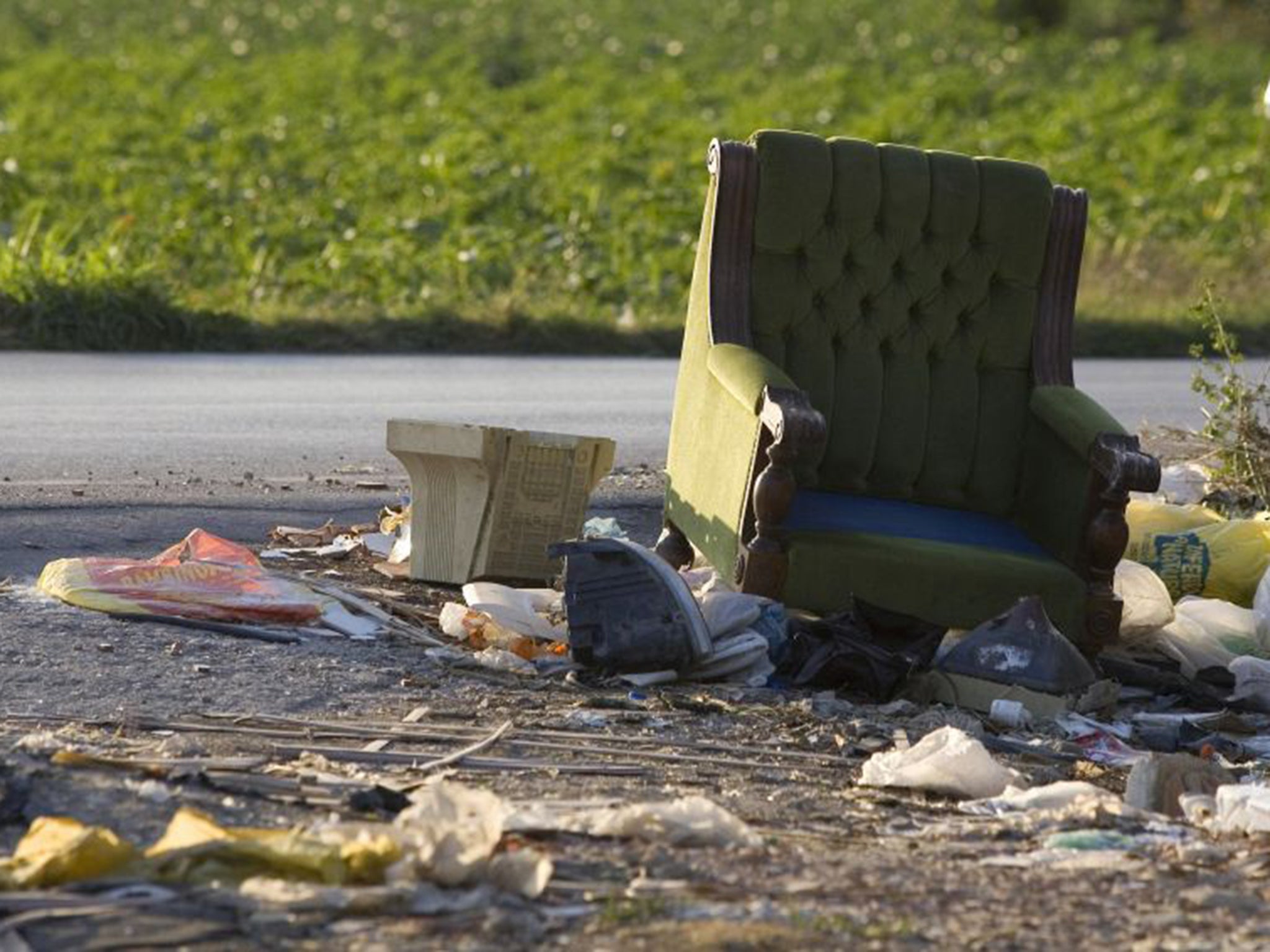The British gangs running waste rackets to launder money
Criminals undercut legitimate disposal firms in cash deals and dump the rubbish, say police

Police warn that organised crime groups are muscling in on the UK's waste sector using cash, corrupt officials and violence.
Intelligence assessments suggest that 14 of the most dangerous gangs in Scotland are involved in the industry. While the highest fine for illegal dumping has been £200,000, detectives say they will use prosecutions linked to environmental crimes as a basis to retrieve an estimated £100m of criminal assets identified last year from gangs' other activities. The police say the number of gangs involved has more than doubled since 2012.
"We will use all means necessary to impact on those organised crime groups in their pursuit of profit," said Detective Chief Superintendent John Cuddihy, Police Scotland's head of organised crime and counterterrorism. "We will never arrest our way out of this problem. We have to break the cycle."
Senior police said the most powerful gangs were undercutting legitimate operators by ignoring environmental standards or avoiding tax by mixing high-harm waste – that attracts higher rates of taxation for dumping – with low-risk rubbish.
As a result, Scottish officials are considering a specialist environmental court to tackle the problem. Mr Cuddihy said top-tier criminal groups acted like sophisticated multinationals: "They operate like a business and simply apply their model to waste contracts, which they see as an emerging market for them with easier access to profit," he said.
A Europol report in 2013 found that the crime was under-investigated across Europe and that only the Italian mafia are well known for their involvement in the waste industry.
The industry – which in many areas operates on a cash-only basis – has been used as a front to launder the proceeds of other crimes, said Willie Wilson, the head of enforcement at the Scottish Environment Protection Agency, Sepa.
Corrupt farmers have allowed their land to be used for tipping and industrial units have been filled and left abandoned. Some of the most harmful electrical waste has been shipped abroad to Africa and Asia.
An industry report – "Waste Crime: Tackling Britain's Dirty Secret" – found UK cases of electrical waste being sent abroad involved the same groups responsible for theft, human trafficking, fraud, drugs, firearms and money laundering. "Illegal export therefore provides the clearest evidence of waste crime's increasing role as part of a criminal gang's portfolio of illegal activity," it said.
The highest penalty imposed by the Scottish courts so far was for the dumping of car tyres and plastic at a former colliery in West Lothian, in 2012. The rubbish was then buried. Locals spoke of queues of lorries waiting outside the gate in the early mornings despite the closure of the pit more than 40 years ago.
An investigation eventually led to the discovery of Scotland's biggest illicit dump. The firm, Doonin Plant Ltd, was fined £200,000 and the directors of the company were last year barred from holding licences for running a transport business.
Sepa, which investigated the Armadale case, and a host of other agencies are currently working with Police Scotland to map the threat from waste dumpers and criminal groups: "We're currently investigating substantial amounts of waste on farmland, in industrial units and greenfield sites," said Mr Wilson.
"We can see the presence of serious organised criminal gangs, in particular top-tier criminals embedded in the waste industry. That's clearly a significant concern and threat."
Police said that Doonin was not linked to its database of organised crime groups in Scotland, highlighting what experts say was the mingling of legitimate operators dumping illegally and the infiltration of the industry by serious gangs.
The practice is part of an "entrenched and widespread" problem of illegal waste dumps, flytipping, shipping hazardous waste abroad, and tax evasion that is thought to cost the UK economy £570m every year.
Police have also uncovered evidence of rival criminal groups collaborating to share information from corrupt experts with knowledge of the complex procurement process. Scottish officials have ordered a review of the way waste contracts are awarded. It followed one "near miss", when a council awarded a contract to a firm without being told it was under investigation for waste offences.
An Environment Agency spokesman said waste crimes in England caused serious pollution and put communities and legitimate businesses at risk.
"Last year, the Government gave the Environment Agency an extra £5m to tackle waste crime; with this we are focusing on illegal waste exports, mis-description of waste and illegal waste sites," the spokesman said. "The illegal waste sites taskforce was designed to be active for 18 months to find new ways to disrupt illegal activities. The expertise and methods developed by the taskforce are now applied by the Environment Agency, making us more effective and improving our approach to tackling waste crime," he said. The spokesman said at the end of the last financial year (March 2014) that there were 556 active illegal waste sites, and that this was the lowest figure in four years.
Bookmark popover
Removed from bookmarks